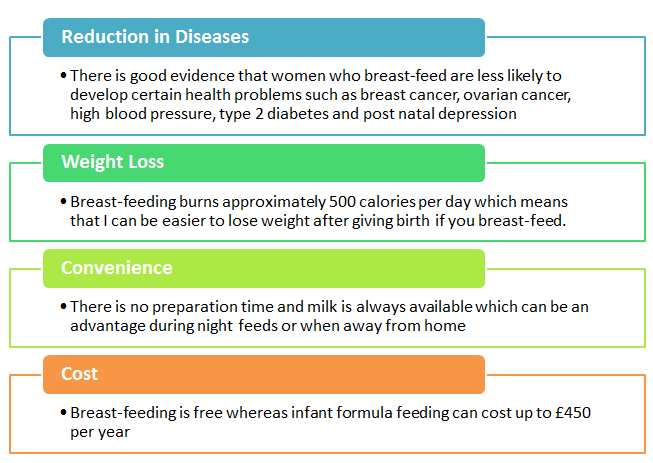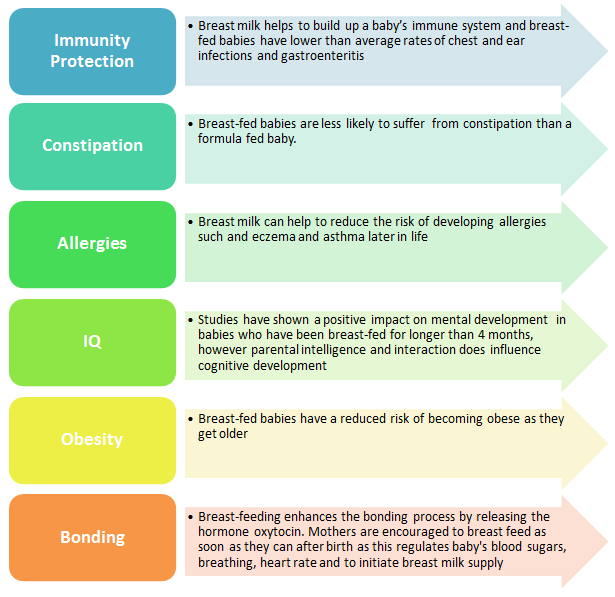The world health organisation recommends that a baby is breast-fed for the first six months of their life and breast milk should form part of a mixed diet after they begin eating solid food, known as weaned, up to the age of two years.
Over the last twenty years the number of women breast-feeding has increased, a study conducted by the NHS in 2005 showed that 76% of new mothers begin breast-feeding which has been an increasing trend since 1990. The initial breastfeeding rate increased from 76 per cent in 2005 to 81 per cent in 2010 in the UK. This includes all babies who were put to the breast at all, even if this was on one occasion only, and also includes giving expressed breastmilk.
Benefits of Breast-Feeding for Babies
Benefits of Breastfeeding for Mum
The benefits of breast-feeding far out way the downsides and it can be really beneficial for mum as well as baby:

Common problems associated with breast-feeding
- Sore or cracked nipples - In the first few weeks of breast feeding it is very common to experience sore nipples, which can feel like pinching, itching or a burning sensation. The most common cause of soreness are improper positioning of the baby, improper feeding techniques and excessive dryness or moistness which cases the nipple to crack. A small amount of expressed milk can be rubbed on to the nipple to relieve soreness; there are also nipple creams available over the counter. Breast-feeding should not be painful and if pain continues or the nipples begin to bleed then the mother should be referred to the health visitor or GP.
- Thrush - This can develop when fungus gets into the breast through a cracked nipple whilst breast-feeding. The nipples appear pink, sore and there is deep breast pain after feeding. The infection is commonly passed from from the baby to the mother. If thrush is untreated then the mother and baby can keep infecting each other. Any breast-feeding mother seeking treatment for nipple thrush or baby who has contracted oral thrush should be referred to the pharmacist.
- Combined Contraceptive Pill - Contraceptives containing oestrogen are not recommended while breast feeding as the hormone may adversely affect the milk supply. May breast feeding mothers are prescribed progestogen only contraceptives.
- Blocked Milk Ducts - Milks ducts can become blocked which causes painful swollen areas in a breast, the skin sometimes becomes red and inflamed and the pain may intensify when the baby is feeding. Blocked ducts may clear up within 1 -2 days but by feeding more often and massaging the breast the symptoms may clear quicker. In some cases the infected milk ducts can develop into a condition called mastitis, which we will cover in more detail on the next page.

